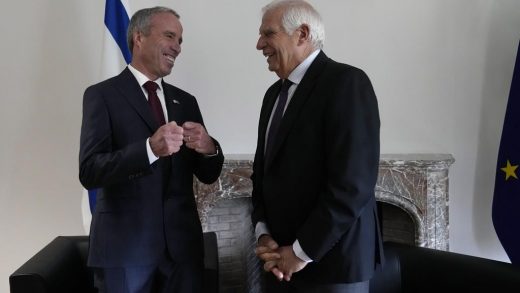
SAULIEU, France (AP) — French lawmakers on Wednesday are expected to approve a 20 billion-euro ($20.3-billion) package of measures meant to help struggling households cope with rising energy and food prices.
The vote comes after a heated debate at the National Assembly, where President Emmanuel Macron no longer has a majority.
The bill was a key promise from Macron, who was reelected for a second term in April. It was also a crucial test of the government’s ability to govern — and opposition forces’ ability to weigh on the law-making process.

Macron’s centrist alliance won the most seats at the National Assembly in elections in June but lost its absolute majority as a leftist coalition and the far right both made big gains, becoming strong opposition forces.
The government offered to make compromises on a case-by-case basis with other political forces to avoid legislative deadlock.
The so-called “emergency bill on purchasing power” is expected to be definitively approved Wednesday after the National Assembly and the Senate found an agreement on the text earlier this week.
An earlier version of the bill was backed by members of Macron’s alliance, the conservative The Republicans party and the far-right National Rally.
It has been debated at parliament alongside an updated version of the budget law, which is to be voted on later this week.
The leftist Nupes coalition — the largest opposition force, composed of the far-left, Communists, Socialists and the Greens — criticized the measures as not going far enough. Its members are expected to vote against or abstain.
Heated discussions at the National Assembly led the debate to be extended to evenings and weekends, with lawmakers of Macron’s alliance sometimes needing to sprint into the chamber in efforts to stop opposition amendments from passing.
“Your purchasing power is our priority,” French government spokesperson Olivier Veran tweeted. “To protect you from inflation, we maintained the price cap on gas and electricity and set a price cap to limit rent increases to 3.5%.”
The bill also includes increasing pensions and some welfare payments by 4%.
Regarding fuel, a current state-financed rebate of 18 cents per liter will be increased to 30 cents in September and October.
Private companies that make profits are also encouraged to offer their employees an annual tax-free bonus of up to 6,000 euros — in line with a campaign promise from Macron.


